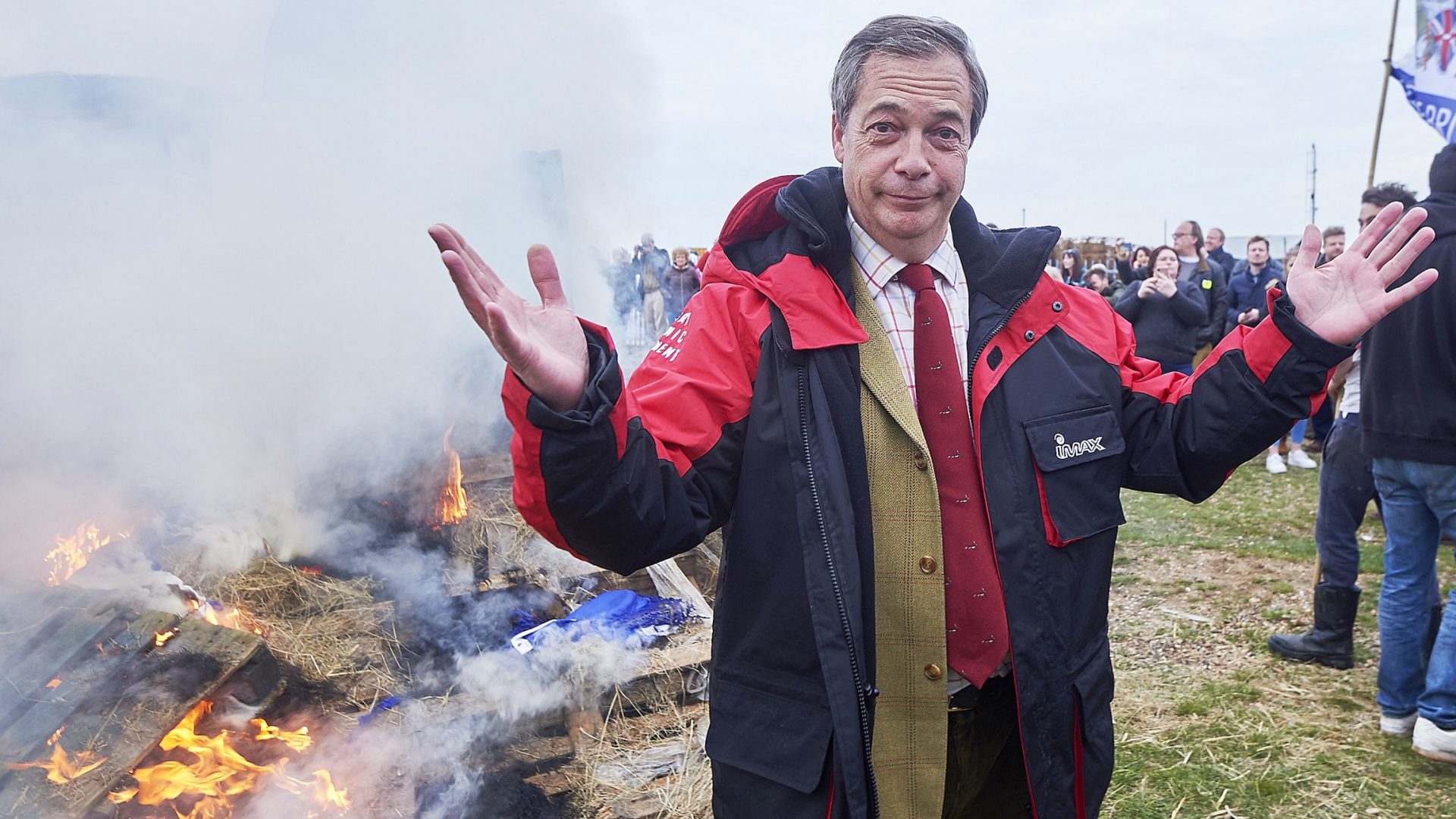This weekend will show whether the people who brought you Brexit – the Daily Telegraph, Nigel Farage, Jacob Rees-Mogg etc – have succeeded in getting any of the candidates they’ve been championing elected to the National Trust’s ruling council in what is being portrayed by the right as a war against “woke”.
As the votes are counted, Orlando Fraser, the chair of the Charity Commission, which has received complaints from factions hostile to the National Trust and other charities such as the RNLI, appears increasingly mindful of how such organisations are now vulnerable to dissenting voices.
“It’ll be all too easy for us to become swept up and weaponised in polarising debates, to be used or misused by parties intent on pursuing ideological aims by regulatory outcomes,” Fraser said in a speech to the Charity Law Association annual conference last week. He added that charities are free to campaign robustly, despite some calling on the regulator to challenge supposedly “woke” behaviour. “To them I’ve said that ‘wokeness’ is not a term that has any legal or regulatory meaning, and for this reason I really wouldn’t know where to start.”
As I have reported, pressure group Restore Trust and its Respect Britain’s Heritage campaign are supporting five candidates ahead of the National Trust’s AGM as part of what they say is a campaign to free Britain’s “rich tapestry of heritage and culture… from the shackles of political activism.”
As with Brexit, it’s not fully clear what plans these people have for the much-loved charity if they were to take control of it – RT director Zewditu Gebreyohanes, formerly of the right wing thinktank Policy Exchange, insists it is “more focused on good governance and accountability in the NT than it is on ‘wokery’” – but in the meantime they have been effective at whipping up dissent.
The National Trust’s director of communications Celia Richardson tells me: “The ‘Respect Britain’s Heritage’ campaign ads have been shared by politicians. They call for ‘less politics’ from the National Trust.’ But, as with many charities, part of our work is promoting policies that support our aims.
“The charitable sector is concerned about the pressure being brought by those who want to push back on this. Throughout history, charities have campaigned for change and it’s part of the sector’s work.”
As the government works on important policies like taking away the tents of the homeless and giving millions to fossil fuel giants, it has been put on the back foot by allegations of a Conservative Party cover-up over a “serial rapist” Tory MP. This inevitably raises questions, too, for the Metropolitan Police, after it was reported that the former Tory chair Sir Jake Berry told them an internal “failure” had allowed the unnamed MP to “continue to offend”.
The serious claims originated in Nadine Dorries’s book The Plot: The Political Assassination of Boris Johnson, along with a great many other allegations, including one that another MP was found to be in possession of a laptop with indecent images of children stored on it.
One assumes that Dorries has shared what she knows about these matters and any other Tory scandals with the Met – and not just with the Daily Mail, who are serialising her book and who already pay her handsomely for a weekly column, or with buyers of The Plot, for which she received a £20,500 advance from publisher HarperCollins.
Dorries does not name names in the book, explaining on a promotional video: “Most people would only speak to me with a guarantee of anonymity.”
Talking of authors, what have Nigel Farage, Donald Trump and Liz Truss in common? They are all writers with Regnery Publishing, the conservative publishing house that has lately given Truss £6,161 as the initial advance for her book Ten Years to Save the West.
Regnery have still to get around to adding the failed PM’s name to their roster of authors, but she admits on the register of MPs’ interests that she has already managed to put in 90 hours’ work on the book between December 2022 and September 2023.
She has also netted another £31,556 last month for talks in Texas and Switzerland and will soon head to Washington DC for a meeting of the centre right alliance International Democracy Union (IDU).
Tali Fraser of The House website reported a friend of Truss joking of her taxpayer-funded security team: “The police officers love her habit for travelling!” Since leaving No 10 just over a year ago, Truss has declared six trips worth a total of £58,000 in the MPs’ register, including a four-nighter in Hawaii to attend a meeting of the Pacific Forum thinktank, on which she was accompanied by her husband, Hugh O’Leary.
One trusts Truss’s constituents in South West Norfolk don’t require all that much of her time.
After Lloyds was forced to seize control of Telegraph Media Group when a £1bn loan it made to its former owners turned bad, the bank is understandably sceptical of the Barclay family’s claims to be in a position to reacquire the titles after securing funding from unidentified backers in the United Arab Emirates that they maintain would enable them to repay their loan in full.
I am told Lloyds still wants to go ahead with a formal auction for the titles, not least because they don’t understand why the Barclays’ chums in the UAE didn’t come forward sooner to save them forfeiting the titles in the first place. They are conscious, too, that the rules on media ownership and money laundering make funding from overseas a highly complex matter which must overcome all the necessary regulatory hurdles. This could well delay the sale process without any guarantee the funding would come through.
Nadhim Zahawi has been boasting lately about what an “honour” it would be to take over as Telegraph chair, but Mandrake hears the former chancellor is already on board as a fixer, using his contacts in Westminster and the Middle East to make sure the Barclays’ deal comes through. Zahawi insists, however, that his involvement is limited and it is all “between the Barclays and their bankers.”
Daily Mail grandee Paul Dacre never showed up to see himself portrayed on stage last year in my play Bloody Difficult Women. Paul Burrell, the butler to the late Diana, Princess of Wales, would appear to be made of sterner stuff and quietly slipped in to see Matthew Flynn play him in Jonathan Maitland’s The Interview at the Park Theatre in north London.
Burrell is shown as self-serving, overweight and creepy in Maitland’s dramatisation of how the BBC journalist Martin Bashir secured his notorious interview with the princess, but Maitland tells me he registered no objections. Nor, interestingly, did another first-nighter – Matt Wiesler, the graphic designer who unwittingly (so he maintains) mocked up bank statements for Bashir to show to the princess. Wiesler warned Maitland he would storm the stage if he felt Ciaran Owens’ portrayal of him was unfair, but, in the event, sat tight.




